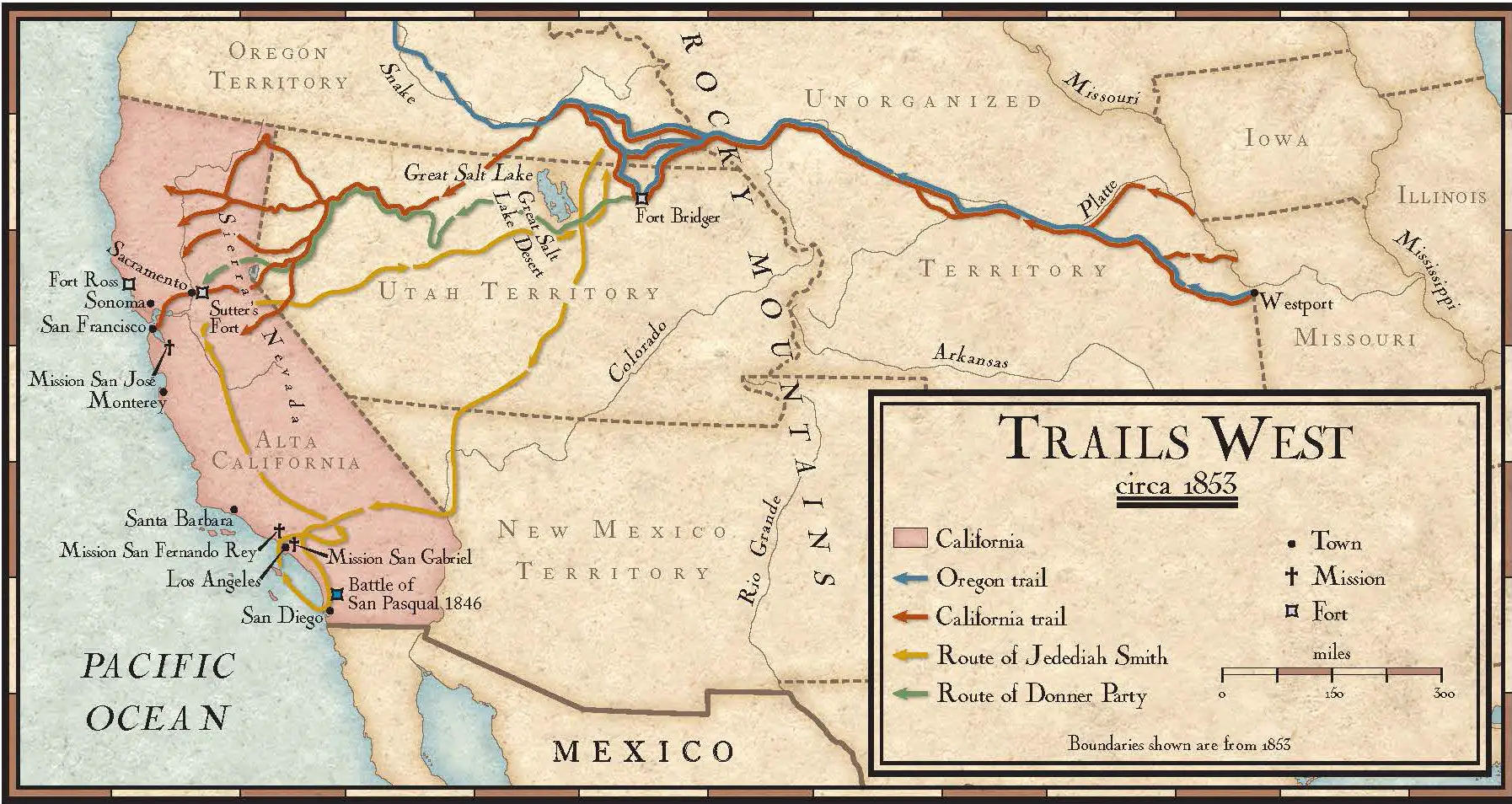Traveling West

When the New World that is now the United States was settled, it established most of the thirteen colonies on the Eastern coast. As the country continued to grow, it expanded into the south, but soon that wasn’t enough for the many settlers and immigrants that were arriving. Expansion soon happened into areas that are known today as Ohio, Indiana, Ohio, Wisconsin, Illinois, and Michigan and eventually into Kentucky. However, when President Thomas Jefferson completed the Louisiana Purchase from the French, there was a whole new territory to move to, and people were eager to travel west to the new lands.
Once the war with Mexico ended, they gave the U.S. government the rights to Texas and most of California. In a very short amount of time, the U.S. government arranged a treaty with Great Britain and then added the Oregon Territory as part of America. The vast amount of open land offered opportunities for pioneers and settlers to move. For some, such as the Mormons, they were looking for a release from religious persecution. For others, they wanted to take advantage of the gold rush in California, and still, others wanted to establish a new home in an unfamiliar area.
The expansion into the west was not an easy one. Those that set out as pioneers and settlers had to overcome incredible odds. They faced horrible weather, droughts, attacks from Native Americans, diseases, and bandits. There was little in the way of any law enforcement, so families traveling west were pretty much on their own. It was during this time that the Wild West became known for being gunslingers.
They were making the trip west meant traveling in wagons and carrying as much food, water, and supplies that were needed. Children that were old enough would often walk alongside the wagons, and since space was important, they had very little in the way of toys or personal possessions. The trip often took as long as six months, and they had to take care of the ox teams that hauled the wagons. Most of the food that they took included items that would last longer. A standard diet including milk from a cow that they brought with them, beans, bacon, ham, bread, and dried fruit. They might send someone out to go hunting, and sometimes they had fresh meat or fish.
When the families stopped for the evening, they had to set up outdoor sleeping tents and cook outside. If it rained, the pioneers were required to sleep under the wagon. Because they traveled over a lot of dry areas, dust was a major problem. The dust got everywhere, including their ears and eyes.
Because the trip west covered thousands of miles, the pioneers saw many new and exciting things. They saw vast areas of grasslands, herds of buffalos that extended as far as the eye could see, waterfalls, hot springs, mountains, and deserts. Children were required to do chores, and both boys and girls took care of the animals, helped with cooking, washed dishes, and cared for any of the younger kids. One of the biggest and most important jobs was finding and bringing back freshwater and getting wood for their fire. If no wood could be found, they would collect “Buffalo chips,” which were dried Buffalo manure.
Kids had some time to visit with friends that traveled in wagons along with them, and exploring and playing. They played simple games and often kept diaries about their trip and how they were feeling.
The westward expansion took many years, but between 1800 and 1900, the population of the U.S. grew from 5.2 million to 76.2 million.
Q&A:
What did the pioneers use for their fires when they couldn’t find wood?
Buffalo chips
What were some of the incredible odds the pioneers had to face as they traveled west?
Horrible weather, droughts, attacks from Native Americans, diseases, and bandits
What were two major deals made that opened up the land in the southwest and west?
Louisiana Purchase and treaty with Great Britain
What was the average pioneer diet as they traveled west?
Milk from a cow they brought with them, beans, bacon, ham, bread, dried fruit, meat, and fish if they hunted
How did the older pioneer children travel?
They walked
Where did the pioneers sleep if it rained?
Under the wagon



